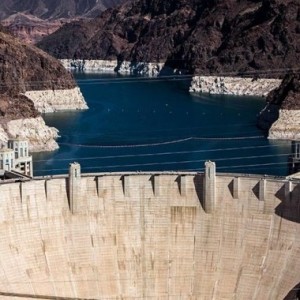The Stream, December 9: Water Contaminated by Oil Spills in Peru’s Amazon
The Global Rundown |
Oil spills may be sickening communities in Peru’s Amazon. Guyana and Cambodia are getting international funding to improve water access and sanitation, while researchers say better data is needed to pursue water development goals at the global scale. Tap water shortages are forcing a Malawi city to turn to unprotected water sources, and political challenges are impeding efforts to improve drinking water protections in the United States. Namibia is considering expanding its desalination capacity, while more frequent heatwaves threaten water infrastructure in the Mediterranean.
“I never knew what crude oil was, and then suddenly we saw it floating down the river.”—Melita Bela Celis, a resident along Peru’s Marañón river, where water and fish contaminated by oil spills are thought to be sickening communities. (Guardian)
By The Numbers |
$30 million Amount Guyana has received from international investment banks to fund improvements to its water system. BN Americas
$183 million Amount the Asian Development Bank is committing by 2018 to expand access to clean water and sanitation in Cambodia. Cambodia Daily
20 million cubic meters Capacity of Areva’s desalination plant in Namibia, which the country may more than double to 45 million cubic meters. Bloomberg
Science, Studies, And Reports |
Major heatwaves could occur once every other year by mid-century in Europe, and could be particularly threatening in the water-scarce Mediterranean region, according to a new study released by the United Kingdom’s Met Office. Guardian
Improving data on water quality globally is essential for setting and achieving new Sustainable Development Goals that will be set next year when the Millennium Development Goals expire, according to researchers at the Yale Center for Environmental Law and Policy. Global Water Forum
On The Radar |
Shortages of tap water in the Malawi city of Blantyre are increasing the risk of waterborne diseases as residents turn to alternate sources like rivers and wells. Voice of America
Efforts to expand protections for drinking water sources in the United States are facing political hurdles, despite a growing necessity for such protections in agricultural areas. Bloomberg View
A news correspondent for Circle of Blue based out of Hawaii. She writes The Stream, Circle of Blue’s daily digest of international water news trends. Her interests include food security, ecology and the Great Lakes.
Contact Codi Kozacek






Leave a Reply
Want to join the discussion?Feel free to contribute!